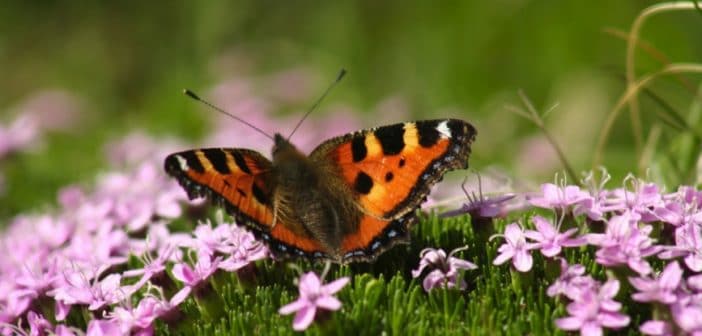 Even if you’re not an armchair mathematician (if there is such a thing), you’ve undoubtedly come across the phrase “butterfly effect” somewhere along the way. Things always happen for a reason, the butterfly effect says, and usually in seemingly random, unrelated ways. And while it’s connected to deep, incredibly complex mathematical principles that I’m not smart enough to understand—concepts that govern how and why things happen—it’s a term that people recognize. (The phrase has graduated to the title of a movie starring Ashton Kutcher, for God’s sake.) I’m also absolutely convinced that my alcoholism behaved in the exact same way as the butterfly effect does: it’s as poetic as it is powerful and, strangely enough, completely predictable. I was destined to be an alcoholic—I just didn’t know why.
Even if you’re not an armchair mathematician (if there is such a thing), you’ve undoubtedly come across the phrase “butterfly effect” somewhere along the way. Things always happen for a reason, the butterfly effect says, and usually in seemingly random, unrelated ways. And while it’s connected to deep, incredibly complex mathematical principles that I’m not smart enough to understand—concepts that govern how and why things happen—it’s a term that people recognize. (The phrase has graduated to the title of a movie starring Ashton Kutcher, for God’s sake.) I’m also absolutely convinced that my alcoholism behaved in the exact same way as the butterfly effect does: it’s as poetic as it is powerful and, strangely enough, completely predictable. I was destined to be an alcoholic—I just didn’t know why.
The butterfly effect itself is part of a field of study known as chaos theory. (If you remember, Jeff Goldblum made chaos theory sound sexy in Jurassic Park.) The basic gist is this: one tiny, random thing can have a giant effect halfway across the globe. “This effect grants the power to cause a hurricane in China to a butterfly flapping its wings in New Mexico. It may take a very long time, but the connection is real,” one site claims. “If the butterfly had not flapped its wings at just the right point in space/time, the hurricane would not have happened.” Those connections haunt me as much as they inform my drinking problem. And like most alcoholics I know, I’m no stranger to the gale-force winds of unemployment, dishonesty and depression.
The butterfly effect, of course, is more metaphor than it is actual science. (It doesn’t help that the mathematical pattern emerges in two connected ovals looking exactly like a butterfly.) Critics argue that, no, a butterfly in Brazil is never going to cause a tornado in Texas. But the basic idea isn’t wrong. Understanding all the comments in life that gave drinking an allure, all the moments that brought it alive in my brain and the series of bad decisions that made driving after that seventh beer seem like a good idea is futile. When it comes to my alcoholism, though, the beauty of the butterfly effect is that things are as connected as they are predictable. That gives me real comfort. I like to think of my drinking as the culmination of a lot of little things—a zillion tiny nudges in one direction. A family member sipping a beer with a satisfied sigh. Colorful alcohol advertising in magazines. Men confidently drinking in music videos. And in the same way, I think it’s true for my sobriety, too.
For the longest time, especially near the end when I was hiding out in bars at noon by myself, I was confounded how I’d become an alcoholic. How had this happened to me? I didn’t understand how it’d all come to this. There’s a scene at the end of Jules Verne’s Around the World in Eighty Days where they’re in a steamer ship, just off shore, and able to see land. The characters are mere miles away from claiming their fortune. Unfortunately, they don’t have enough fuel to get their ship all the way there. So, they decide to start using the ship as fuel. They rip it apart—tearing it up, plank by plank, and throw it into the fire to make it. That’s how I felt as an alcoholic. If I was going to keep at it, if I was going to really make a go of being a full-blown alcoholic who haunts bars at noon and ignores his children, I’d be borrowing from myself. I’d have to start tearing myself apart and throwing myself in the fire, just to keep going. I wasn’t prepared to go that far. I didn’t know how I’d become an alcoholic, but I also knew that I didn’t want to be one anymore.
The truth of the matter is that my alcoholism wasn’t a light switch—it wasn’t as if anyone or anything railroaded me into a life of buying cheap pints of vodka. It wasn’t like: Oh, here we go. Here’s the part of the movie where I become an alcoholic. No. It was the product of a million little things—gentle course corrections and slight shifts in the wind. No one goes from enjoying beer one afternoon to hiding plastic bottles of scotch in a filing cabinet overnight. Just as a butterfly flapping its wings may or may not change the weather across the world, my alcoholism is a mystery of molecules. There’s just no point in tracing the reasons how and why my alcoholism began. It’s less important to uncover what caused it all than to simply understand that it’s all connected.
In fact, the butterfly effect says more about my sobriety than it does of my drinking. It’s worth understanding all the little things that caused me to put the bottle down. Maybe one of those insane nights of drinking I had in grad school helped to, years later, lead me to sobriety. Perhaps me not drinking in front of my children will have an effect years down the road for them. And that’s probably too tidy of an example. That’s too A-to-Z for chaos theory. There are simply too many unknowables in life, too many things that go uncaptured—a kaleidoscope of what-ifs that no amount of computer-crunching and calculation will ever capture. It’s probably all the small, little, imperceptible things I do as a sober person that make a difference down the road. The things I don’t do in sobriety are the things that cause some good downstream. If my drinking was predictable, so too was my sobriety. In the end, while something mathematically dictated that I’d be a destructive drinker, something also calculated that I’d be a happy person in recovery. And, for me, that’s something you can’t diagram enough.
Sponsored DISCLAIMER: This is a paid advertisement for California Behavioral Health, LLC, a CA licensed substance abuse treatment provider and not a service provided by The Fix. Calls to this number are answered by CBH, free and without obligation to the consumer. No one who answers the call receives a fee based upon the consumer’s choice to enter treatment. For additional info on other treatment providers and options visit www.samhsa.gov.




